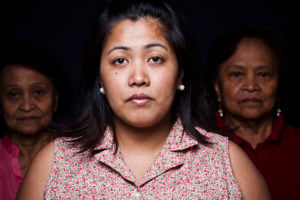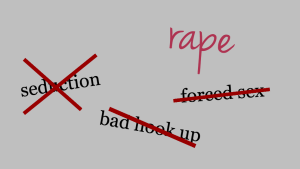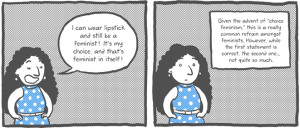“Stay out of my and my student’s pants,” said a professor during a discussion about university policies restricting romantic relationships between professors and students.
Over the years, more and more colleges have developed such policies and there are strong opinions both supporting and opposing them.
Professor-student romantic relationships are a routine theme in TV shows and movies. The plots are always pretty similar. A student is having sex with a professor to get better grades, or the professor preys upon young coeds who are awe-struck or feel powerless to decline.
All this suggests that we apparently know these relationships are happening, and have some opinions about what they are about.
And this is relevant to us, fellow feminists, because this topic covers things that we care about, like sexual autonomy, potential abuses of power, and fairness.
So, let’s find out why this topic is giving some higher minds an intellectual wedgie.
Power Differentials
A primary argument against professor-student relationships is the belief that there is an inherent power differential within them, alongside the potentially risky blending of public and private roles. The concern is that the relationship will no doubt enter the profession domain somehow and possibly cause problems.
In particular, some proponents of the policies worry about the potential for the professor to abuse their authority. For example, what if they become angry over something like a break up? Would a professor be tempted to reduce grades, withhold recommendations or references, and so on?
And even if they wouldn’t, the student could still be in a place to worry about it. It is because of this power imbalance that some people believe that true consent can’t be given on the part of the student.
Those who oppose these policies argue that the example of the professor abusing authority after a break-up would be a case of sexual harassment, and not an example of a consensual romantic relationship.
So, the appropriate action would be to strengthen existing sexual harassment policies, instead of prohibiting all consensual professor-student relationships. Also, not all relationships would end in this manner, and some don’t end at all and result in long-term relationships and even marriage.
In an article discussing the legal standing of universities who have such policies, the above point of view was echoed.
The author explained that instead of universities using professor-student relationship policies as a means of trying to avoid a sexual harassment situation, they would be better off indicating that the policy is about professional ethics and the kind of relationship the university expects between professor and student.
Like many other topics, there are some people who identify as being feminists who support these policies, and other feminists who absolutely don’t.
For example, noted feminists bell hooks and Jane Gallop, who herself was accused of sexual harassment and acknowledged relationships as both a student and as a professor, along with other educators have argued that the way in which professor-student relationships are being depicted, with professors having all the power and students having none, is not actually the case.
Some point out that students have the ability to rate their professors anonymously and that they can, and do, talk about their professors to other students and faculty. They make decisions on whose classes they will take.
For this reason, among others, opponents of these policies argue that not all the power lies with the professor.
Opponents also contend that if you are going to prohibit professor-student relationships because of the power differential, then there should be no relationships with power differentials. That truly equal and consensual relationships would require the couple to be the same gender, race, class, etc.
This argument makes a good point, but the difference may be that those differentials may be less likely to have obvious and tangible consequences due to a conflict of interest.
I might also add that it appears that the awareness of the gravity of the power differential and professional roles may be present in someone’s mind even before a first date.
Both proponents and opponents of such policies have found that the most common make up of these relationships seems to be male professors dating female students.
People on both sides have noted that it is usually the female student who asks the professor out.
That is actually an interesting finding to me, since it is still the case that in most male-female relationships the male asks the female out first.
So why the switch?
Could it be that the professor recognizes, whether consciously or unconsciously, that they could be approaching a person who may feel pressured or uncomfortable because of their authority position? And why would this power difference stop being an issue during a relationship?
Sex and Power
Opponents argue that sexuality between consenting adults is not something that should be monitored, and that sex doesn’t necessarily lead to horrible behavior.
They suggest that these sexual relationships can actually be a growing experience, and that the exchange of influence during these relationships may actually be a way to find personal power. As Gallop describes her reasoning for seducing some professors:
“To be honest, I think I wanted to get them into bed in order to make them more human, more vulnerable. . . . I wanted to see them naked, to see them as like other men. Not so as to stop taking them seriously as intellects (I never did), but so as to feel my own power in relation to them. . . . Seducing them made me feel kind of cocky and that allowed me to presume I had something to say worth saying.”
Another argument against these policies is that they single out and prohibit only sexual relationships, and not relationships where bias may also be relevant, such as between two relatives.
But the problem with that argument is that it obviously ignores that the two types of relationships are completely different in terms of intimacy and influence.
I don’t know about you, but I wouldn’t describe the level of influence with my cousin who is a professor in the same way that Gallop described hers with the professors she was intimate with.
But again, this is not something that is seen as an issue with people who oppose such policies, and they reject the idea that there is a clear cut power/non-power relationship. One opponent described the relationship as being more of a “spiral of power and pleasure” instead.
I’ll admit I giggled a little bit when I read that, because I wondered whether most people are that philosophical about things prior to getting it on.
All I know is that if someone said to me, “Robin, I prefer that you not see me as having all the power and you having none, but rather us being involved in a spiral of power and pleasure” my mind will would sarcastically think, “Oh yeah, this person is gonna be a LOT of fun in bed.”
Then again, I guess it could be hot, “Come on, baby, talk theory to me.”
One major concern by opponents is that these policies may harm women, because they prevent them from making their own choices about who they want to have sex with.
In fact, it’s been argued that to tell a woman that she can’t say “yes” to sex is not that much different than telling a woman that she can’t say “NO!”
They find it ironic that it is mostly feminists, yes feminists, who support such policies, even though they seem to be contradictory to feminist philosophies that women should have autonomy over their sexuality.
They believe these policies make victims out of women and even infantilize them by assuming they require protection from their own choices.
Some argue that students of today are fully aware that they have recourse if they feel like they are being pursued by a professor unwantedly, and can be trusted to report.
But they may be overestimating how “empowered” female students feel about reporting sexual harassment on campus, and it also ignores the reasons why they may not want to.
One study found that between 20-30 percent of female students have been sexually harassed by a professor at some point in their academic career. Another found that out of 38 female students who admitted they had been harassed, twenty-three didn’t report it to anyone, and only one reported it to the person’s supervisor.
If reporting Joe Student might be intimidating and lead to public ridicule, doubt, blame and pushback, consider how terrifying it might be to report Dr. Joe Biologist, world-renowned scientist and researcher.
University’s Role
So, I said all of that to ask this, what should the university’s role be in all of this? Should they have no policy at all? Should they prohibit relationships only if there is a direct supervisory relationship? Or should all professor-student romantic relationships be forbidden as long as they are both involved with the same university?
As in most cases where two groups have competing goals, they have a tendency to take up polar opposite arguments, which usually leaves nothing in the middle.
Personally, I think that two adults can absolutely consent to sex even if they have a duel relationship. And I agree that there is a difference between a consensual professor-student relationship and sexual harassment. I don’t think that the two situations should be handled the same.
While there isn’t a ton of research on this matter, that which has been conducted doesn’t seem to support the stereotypes that female students only sleep with professors for good grades, or that all professors who have engaged in a relationships with students are opportunistic leeches.
So, I also believe that some very good things could come out of some of these relationships.
Where I part ways with some of the opposition arguments is that I do see these relationships as having a strong potential for a conflict of interest. And frankly I find it arrogant to think that you are immune to bias toward someone you are in a romantic relationship with.
While bias can occur even without sexual intimacy, romantic relationships do have a way of potentially bringing up emotions that other types of relationships don’t. And unless you are a Vulcan, there will be times when you act based on emotions rather than rational thought.
In addition, we tell a lot of people who they can and can’t sleep with based on roles, whether explicitly or implied, due to concerns of conflict of interest. We already know that client-therapist is a no-no, but it appears that supervisor-supervisee and president-intern are also among the discouraged.
So, what makes professor-student different?
Well, some could argue that they aren’t different and there shouldn’t be rules against them either. Others may say that those relationships are different because there “really is” an imbalance of power there that is not present in professor-student relationships.
But there are some professors who see their position as academic advisor to be so intimate with students that they believe they should have privileged communication with them, similar to attorney-client, therapist-client, doctor-patient, and spouse-spouse.
The argument being that sometimes students must share very personal and private details of their lives in order for the professor to provide the best academic and career advice.
That sounds like power to me.
And perhaps the kind of professional relationship that universities have decided shouldn’t involve romance, whether due to perceived ethics, the desire to reduce what could be viewed by other students as preferential treatment, or simply because of the desire to protect the school’s interests.
***
This topic has a lot of different viewpoints and nuances, and I have only focused on a few. It was not intended to be persuasive, because frankly I am not sure what the right answer is.
This feels like the kind of topic that I may change my mind on several times while gathering more and more information and listening to more and more viewpoints.
Both sides make good arguments.
What about you, kind reader, what are your thoughts?
[do_widget id=”text-101″]
Dr. Robin Landwehr is a Contributing Writer for Everyday Feminism She’s a mental health counselor and an unapologetic feminist. She holds a Doctor of Behavioral Health degree from Arizona State University, a M.S. degree in Mental Health Counseling from Capella University, and is a licensed counselor in North Dakota and Florida. You can follow Robin on Twitter @RobinLandwehr1 or visit her sometimes neglected personal blog at The Hippie in Me Blo
Search our 3000+ articles!
Read our articles about:
Our online racial justice training
Used by hundreds of universities, non-profits, and businesses.
Click to learn more





















